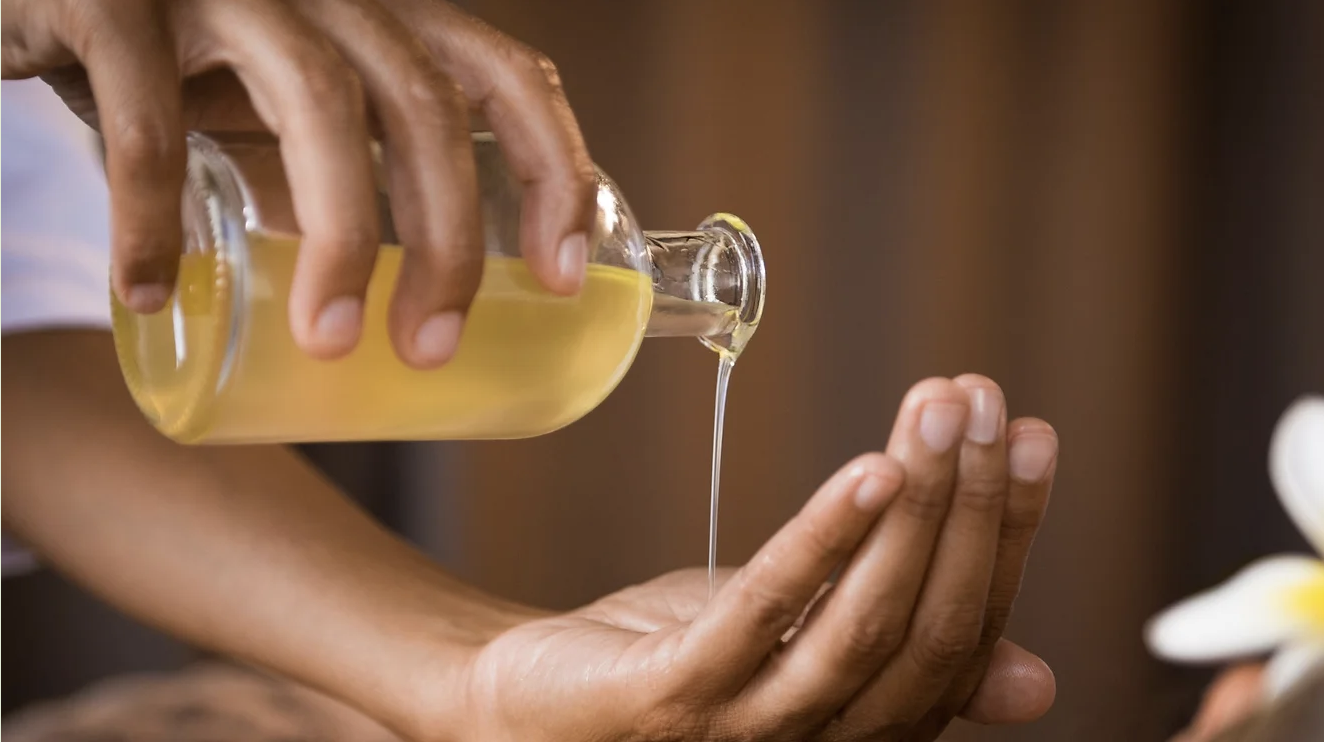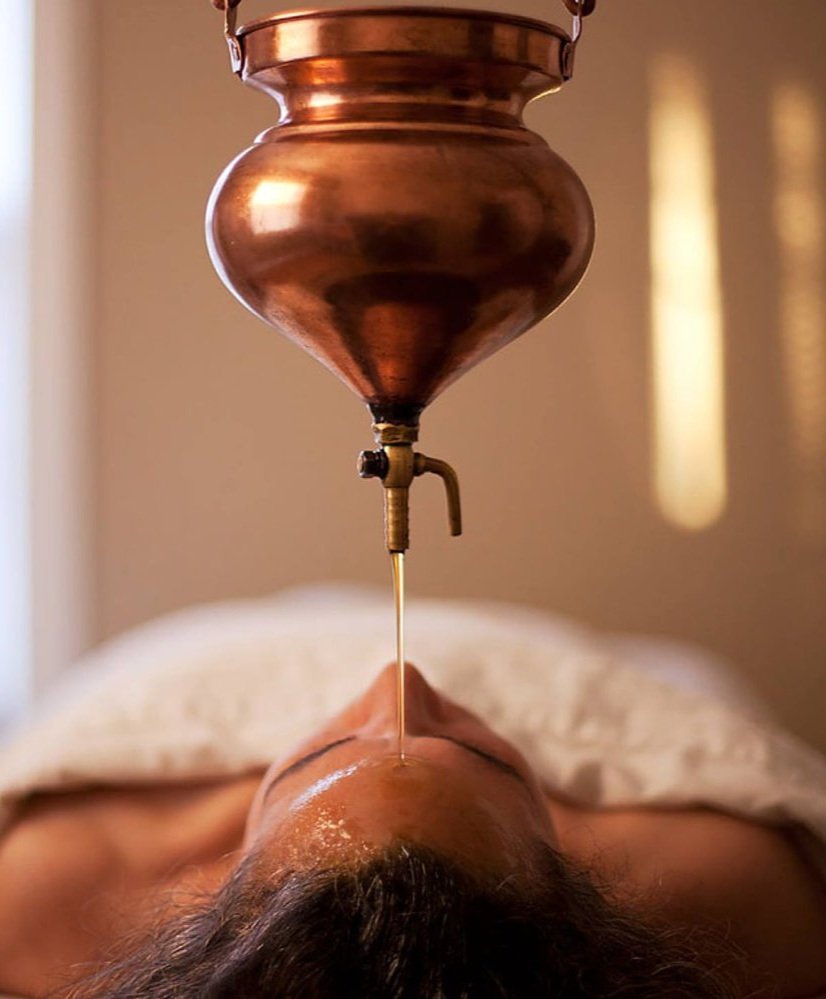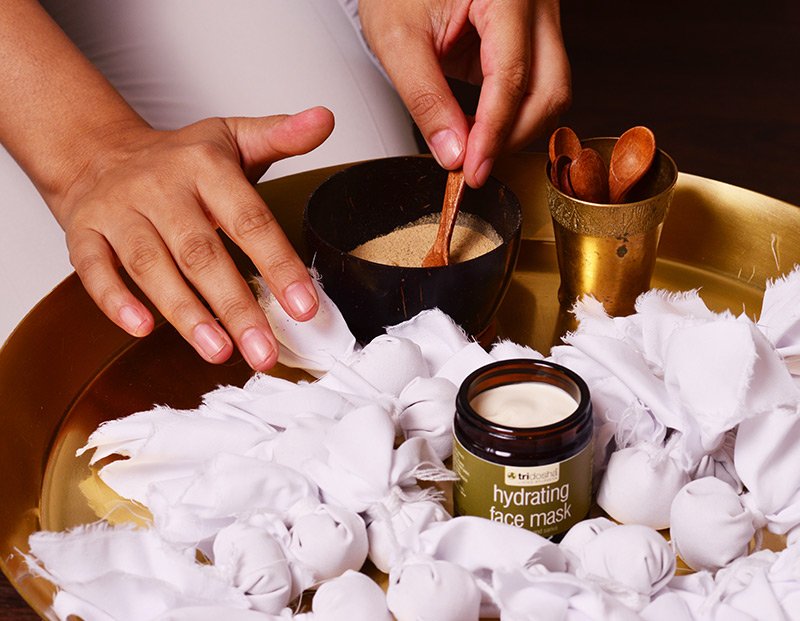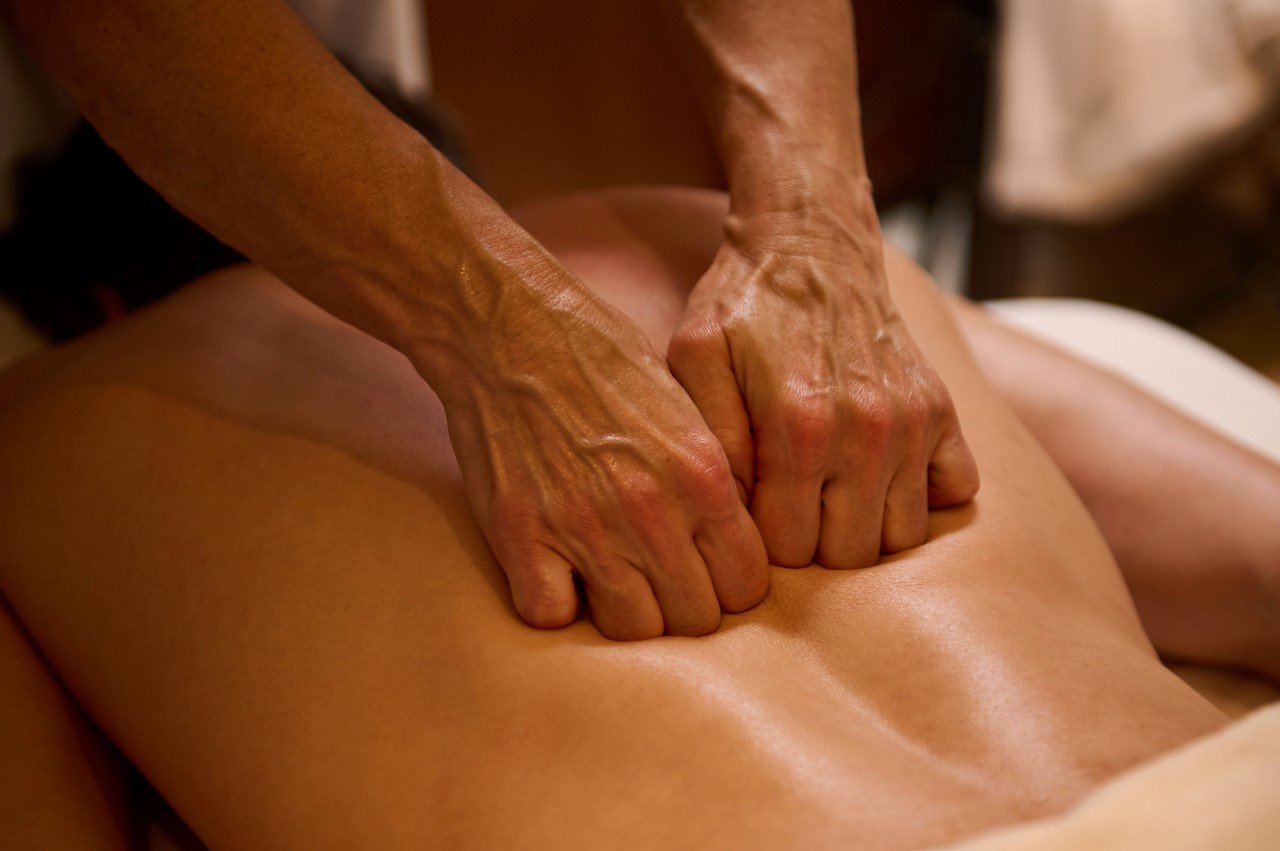Deeply relaxing and rejuvenating, Ayurvedic Abhyanga massage involves the application and massage of warm, herb-infused, dosha-specific oil all over the body. Long, rhythmic, sweeping massage strokes on the limbs and circular strokes on the joints create heat to enable deeper absorption of the oil. The warm oil deeply penetrates the skin to loosen physical, mental and spiritual ama (toxins) at a cellular level. Abhyanga offers multiple health benefits. It nourishes tissues, improves circulation, cleanses the skin and improves overall health. It balances all doshas but particularly vata. With its profound effect on the nervous system, Abhyanga elicits a deep sense of grounding and relaxation.
It is advisable to review the contra-indications listed below when you book this treatment. This list of contra-indications is not exhaustive —if there are any specific or complex health concerns, a consultation is recommended before proceeding.
BENEFITS
Improve blood circulation
Enhance immunity
Ground and relax the nervous system, calms anxiety, relieves stress
Improve digestion, stimulates the internal organs of the body
Increase longevity while decreasing the effects of aging
Nourish the body, tone the skin, and bring a natural glow
Muscle and joint pain relief
CONTRA-INDICATIONS
Lack of appetite, no hunger
Fever, cold, cough, mucous, sinus congestion
Case of severe indigestion, acid reflux
Acute/chronic Constipation, Diarrhoea
ANY form of Inflammation or Infection affecting either the head or the body.
Extreme Tiredness and Fatigue, weakness in the body
High blood pressure (unmanaged)
Bleeding, burns, open or unhealed surgical wounds and scars
Acute skin conditions e.g. eczema, psoriasis, dermatitis
Menstruation days, if very heavy
End
BOOK WHITLEY BAY
ENQUIRE NEWCASTLE
Deeply relaxing and rejuvenating, Ayurvedic Abhyanga massage involves the application and massage of warm, herb-infused, dosha-specific oil all over the body. Long, rhythmic, sweeping massage strokes on the limbs and circular strokes on the joints create heat to enable deeper absorption of the oil. The warm oil deeply penetrates the skin to loosen physical, mental and spiritual ama (toxins) at a cellular level. Abhyanga offers multiple health benefits. It nourishes tissues, improves circulation, cleanses the skin and improves overall health. It balances all doshas but particularly vata. With its profound effect on the nervous system, Abhyanga elicits a deep sense of grounding and relaxation.
It is advisable to review the contra-indications listed below when you book this treatment. This list of contra-indications is not exhaustive —if there are any specific or complex health concerns, a consultation is recommended before proceeding.
BENEFITS
Improve blood circulation
Enhance immunity
Ground and relax the nervous system, calms anxiety, relieves stress
Improve digestion, stimulates the internal organs of the body
Increase longevity while decreasing the effects of aging
Nourish the body, tone the skin, and bring a natural glow
Muscle and joint pain relief
CONTRA-INDICATIONS
Lack of appetite, no hunger
Fever, cold, cough, mucous, sinus congestion
Case of severe indigestion, acid reflux
Acute/chronic Constipation, Diarrhoea
ANY form of Inflammation or Infection affecting either the head or the body.
Extreme Tiredness and Fatigue, weakness in the body
High blood pressure (unmanaged)
Bleeding, burns, open or unhealed surgical wounds and scars
Acute skin conditions e.g. eczema, psoriasis, dermatitis
Menstruation days, if very heavy
End
BOOK WHITLEY BAY
ENQUIRE NEWCASTLE








